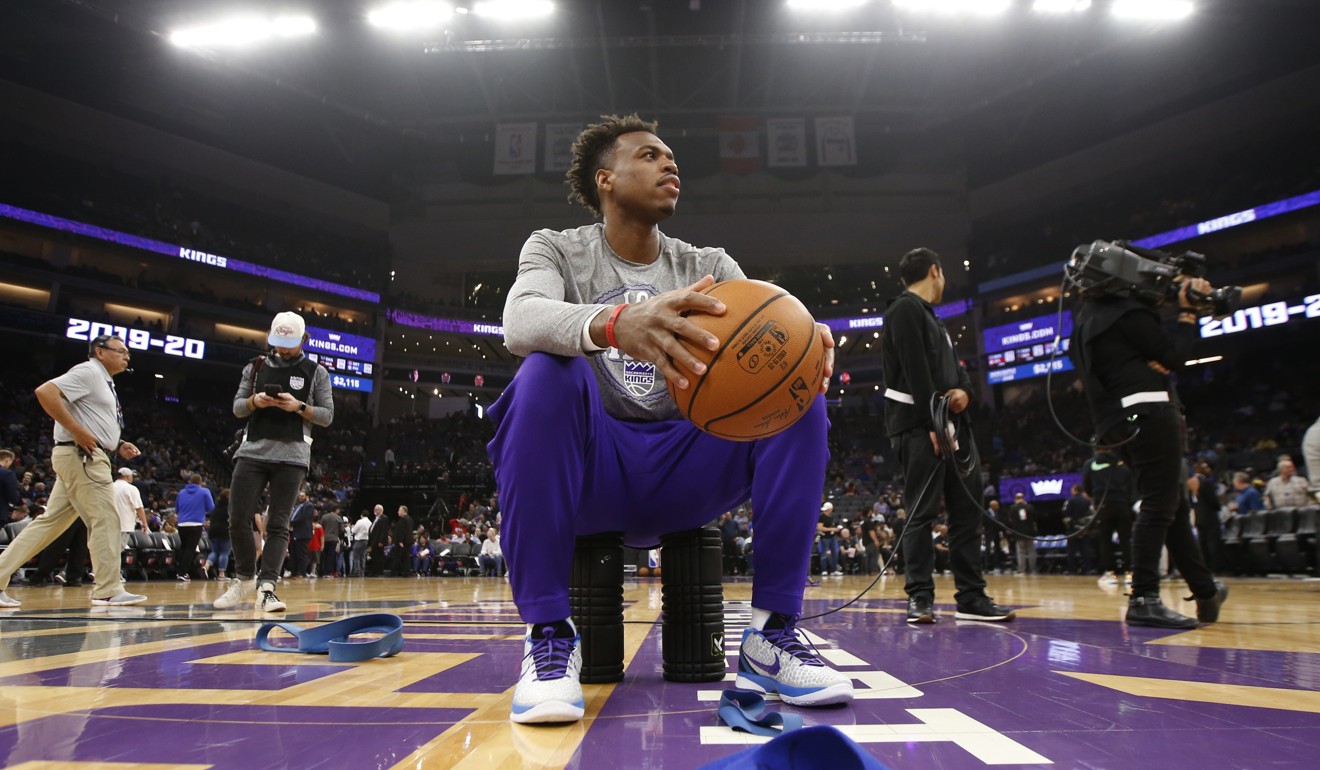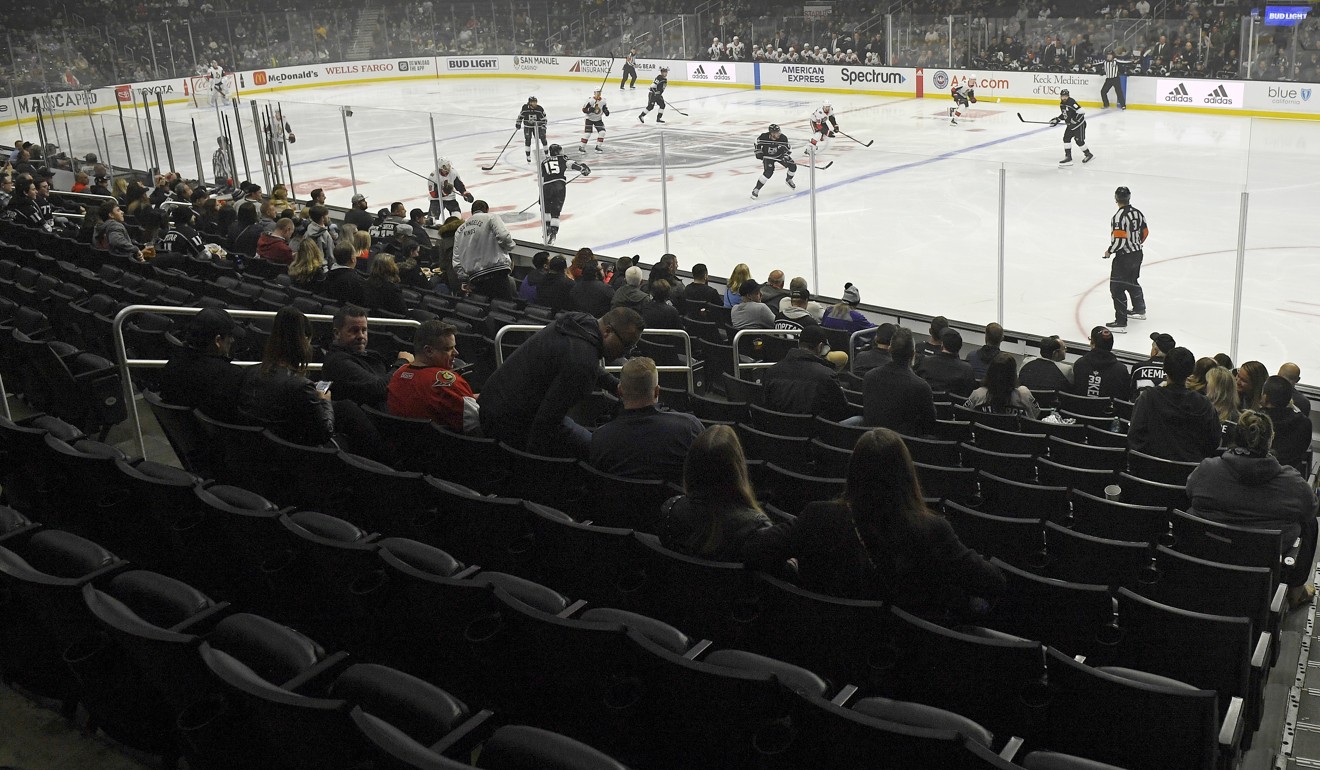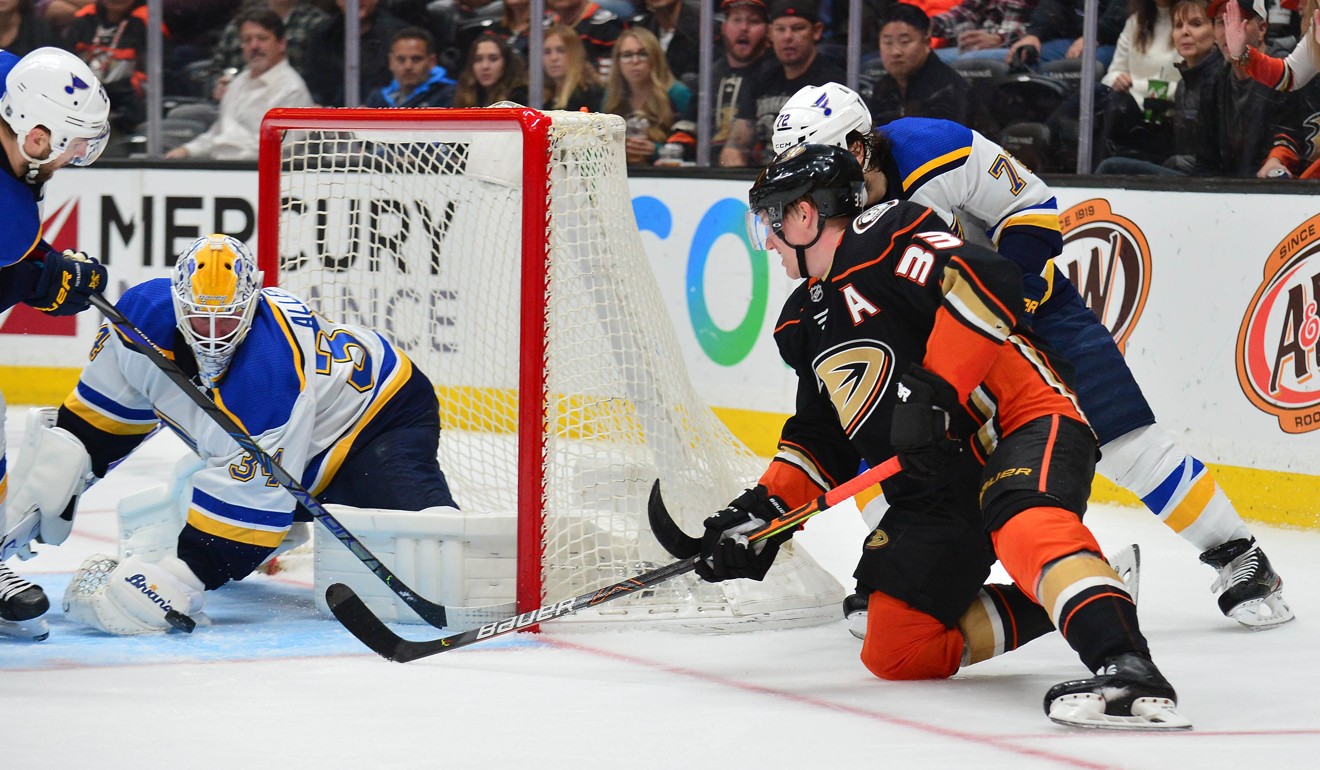
Coronavirus: NBA postpones season, NCAA March Madness without fans as empty arenas the new norm
- Bans on mass gatherings make sporting events top target in trying to contain Covid-19 as leagues grapple with tough decisions
- The financial toll will be heavy as multiple teams are now set to play games in empty arenas while event cancellations pile up
As news trickled into Hong Kong this morning, many people got a shock when checking their news feeds, the pandemic and pandemonium had spread to North America, the central web of the world’s economy led by the United States. Within this realm lies its sports market, a financial behemoth now squarely faced with daunting challenges in how to handle a virus that has quickly swept the world with panic and fear.
The four major leagues: the National Basketball League, the National Football League, Major League Baseball and the National Hockey League have a net worth of US$75 billion dollars, according to a report from PwC.
When you factor in media rights, gate revenue, sponsorship deals and merchandising, it’s size and gravitational force is impossible to underestimate. Americans in particular live and breathe sports, from Nascar and tennis to golf and soccer.

This isn’t even factoring in college sports in the NCAA’s Division 1 field, which includes 6,000 teams of what is estimated to be a US$13 billion dollar industry largely due to two sports: basketball and American football. Or Major League Soccer, one of the fastest growing professional sports leagues in the world, in which the Atlanta United squad, the largest in terms of revenue, is estimated to be worth more than half a billion dollars alone.
That same PwC study on the four major leagues estimates by 2023, that overall number is expected to rise to US$83.1 billion, a number that has been rising steadily since as far back as 2014. To put in bluntly, sports are a big deal stateside, and only getting bigger.
But, there’s a serious caveat now when it comes to growth projections as the world is now grappling with a full-blown pandemic according to the World Health Organisation.
The NBA’s abrupt news was on the heels of the NCAA announcing that its massive, lucrative March Madness basketball tournament would be played without fans. The tournament is the association’s main cash cow, generating around US$933 all on its own when media rights, ticket sales and sponsorships are factored in.

The decision to limit NCAA fan attendance at matches to staff and immediate family will slice into profits not only for ticket sales, but merchandise, concession run-offs and a host of other secondary markets.
The NHL, which has a very similar schedule to the NBA and plays in virtually all the same arenas, released a statement in the wake of the NBA’s move, noting they are aware of the basketball league’s decision and are continuing to consult medical experts and evaluating their options.
The first game to be played without fans has been announced as the Pittsburgh Penguins will take on the Columbus Blue Jackets on March 12 at 7pm Eastern Standard Time. It’s likely in the coming hours all the other games scheduled for tomorrow will follow suit.
Major League Baseball, currently in spring training and set to kick off their season March 26, are already looking into “alternative measures” which includes potentially playing more games in cities less impacted by the virus and some staying put at their training facilities in Arizona and Florida and playing games out of there.
The NFL, which does not kick off until September, has the most breathing room right now, but one has to wonder about the fate of the newly relaunched XFL, an American football league that couldn’t get off the ground back when it was first launched in 2001.
Five days ago a Century Link Stadium employee in Seattle tested positive for coronavirus, which meant the MLS’ Seattle Sounders had to postpone a match and XFL Dragons games, also played out of that arena, will go ahead without fans.

Around three quarters of Americans call themselves regular sports fans, which means close to 200 million people who watch games, buy tickets and purchase merchandise of their favourite teams. These measures, banning mass gatherings, have brought us into uncharted territory as our modern, sports loving society has never dealt with such a far-reaching, all-encompassing enemy.
One would hope in a perfect world the coronavirus can continue to be a unifying force for a planet slugging its way through 2020. The virus does not discriminate. We are all at risk. Sports have long played the common denominator role in modern society, crossing political and national lines, people of all walks of life cheering on their favourite teams in arenas together as one.
Now leagues around the world face one of their toughest opponents yet.

